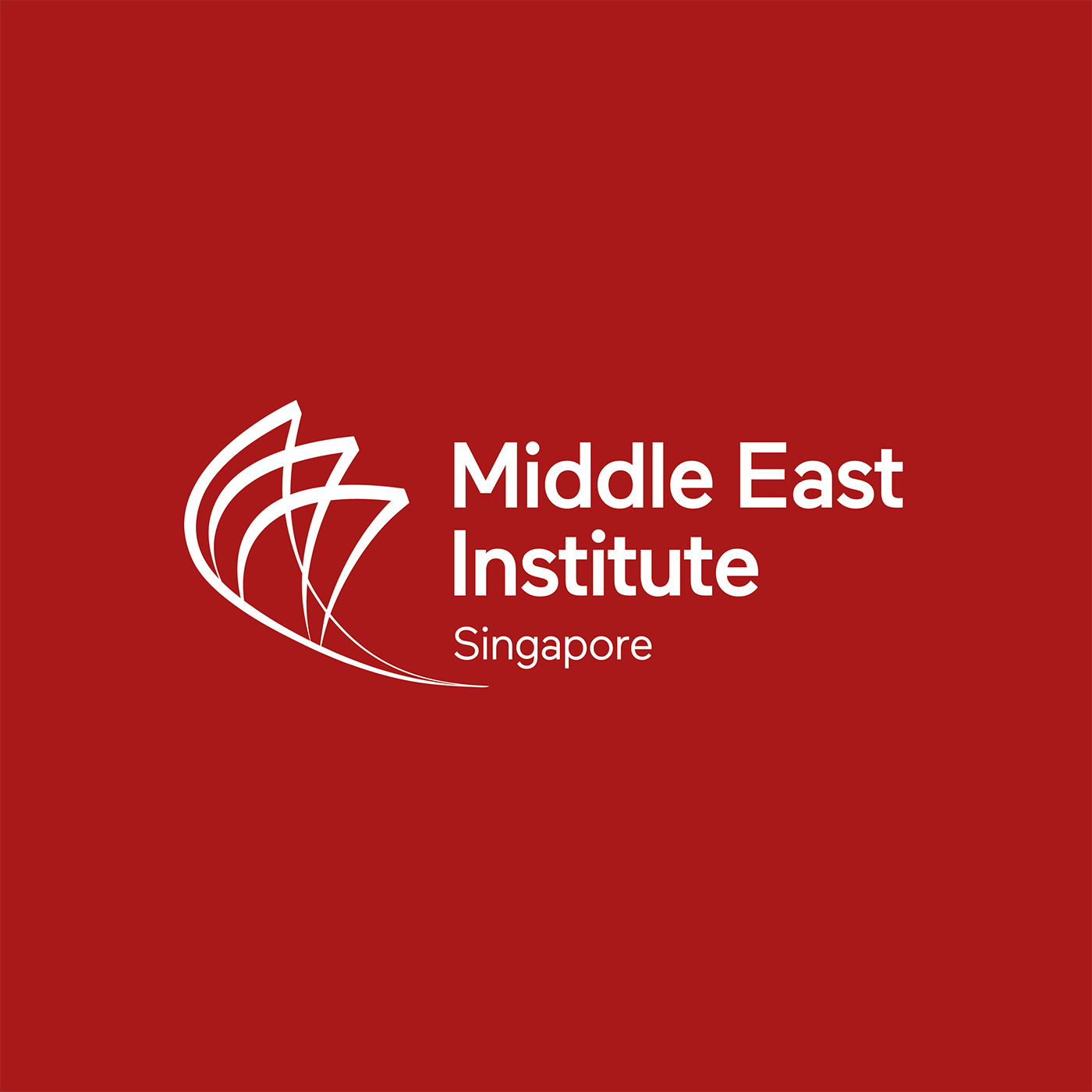Episodes
![[Book Talk] Making It Count: Statistics and Statecraft in the Early People’s Republic of China](https://pbcdn1.podbean.com/imglogo/ep-logo/pbblog4563756/Video_Title_Template_oil_event_title7uxei_300x300.png)
Friday May 28, 2021
Friday May 28, 2021
In 1949, at the end of long periods of wars, one of the biggest challenges facing leaders of the new People’s Republic of China was how much they did not know. The government of one of the world’s largest nations was committed to fundamentally re-engineering its society and economy via socialist planning while having almost no reliable statistical data of the country. Making It Count is the history of efforts to resolve this “crisis in counting”. Drawing on a wealth of sources culled from China, India and the US, Arunabh Ghosh explores the choices made by political leaders, statisticians, academics, statistical workers and even literary figures in attempts to know the nation through numbers.
Ghosh shows that early reliance on Soviet-inspired methods of exhaustive enumeration became increasingly untenable in China by the mid-1950s. Unprecedented and unexpected exchanges with Indian statisticians followed, as the Chinese sought to learn about the then-exciting new technology of random sampling. These developments were overtaken by the tumult of the Great Leap Forward (1958–1961), when probabilistic and exhaustive methods were rejected and statistics was refashioned into an ethnographic enterprise. By acknowledging Soviet and Indian influences, Ghosh not only revises existing models of Cold War science but also globalises wider developments in the history of statistics and data.
Anchored in debates about statistics and its relationship to state building, Making It Count offers fresh perspectives on China’s transition to socialism.
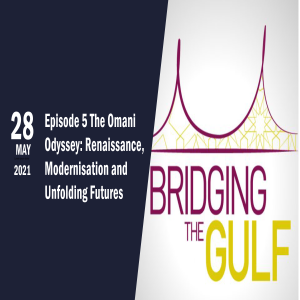
Saturday May 29, 2021
Saturday May 29, 2021
Among the Gulf states, did you know that Oman possesses arguably the greatest amount of raw and scenic beauty? What makes Oman geographically critical is its control over a finger of land in the southern coast, called the Musandam Peninsula, which has allowed the sultanate to pursue an independent foreign policy straddling between its neighbours, Iran and Western governments. What makes the same peninsula intriguing is that you can watch racing dolphins, or quite simply, swim with them!
The Omani sultanate as we know today has a rich history comprising early Portuguese control, a Swahili ruling class (indicating East African ties) at one point and a period when the mountainous interior (under the Imamate) was distinguished from the coastal Sultanate of Muscat and Oman. Only as late as the 1960s did these two areas begin to be united politically. Under Sultan Qaboos, the modernisation of the Sultanate moved forward with purpose. However, the cost of it was a personalisation of rule but the benefits were tremendous social and economic transformations.
Let us uncover the Omani odyssey, its economic outlook under a new sultan and a bold project named the Oman Vision 2040.
Speakers: Dr Mohamed Saad Al Muqadam, Sultan Qaboos University and Dr Yousuf Hamed Al Balushi, Chief Economist of Oman Vision 2040
Dr Mohamed Saad Al Muqadam is an Assistant Professor of Oman modern history at Sultan Qaboos University and previously held several senior appointments at the College of Arts of Social Sciences including Assistant Dean for the college, Dean of Students Affairs and as Head of the Department of History. Dr Al Muqadam earned his PhD from the University of Exeter, where he began to dive into the relationship between Oman and Persia. Besides research interests in the sultanate’s history, he has also examined China-Oman relations in depth, among other bilateral relations.
Dr Yousuf Hamed Al Balushi is the Chief Economist of the Oman Vision 2040 taskforce and is passionate about Oman’s development and investment potential. He has served as an advisor on foreign direct investment (FDI) to both Oman’s Supreme Council for Planning and to the International Monetary Fund (IMF). Dr Al Balushi holds a PhD from King’s College London where he explored the impact of FDI on the contribution of the private sector to Oman’s economic development. He has since published in different outlets, as author of the monograph Omani economy: globalization and the winds of change and as co-editor on a Palgrave MacMillan series covering economic diversification in the Gulf
For the reading materials for this session, please visit this link:
https://mei.nus.edu.sg/wp-content/uploads/2021/04/Oman-Macro-framework-F.pdf
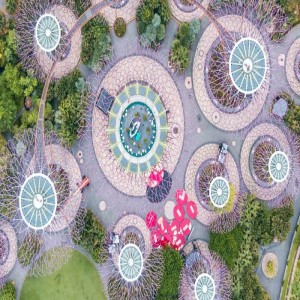
Tuesday Jun 01, 2021
Existing in an Existential Crisis: The Asian Response to Climate Change
Tuesday Jun 01, 2021
Tuesday Jun 01, 2021
About the Webinar
Asia is one of the most diverse regions in the world, with a variety of different environments within its vast lands. Several countries within Asian, including Indonesia, Japan, Vietnam, Singapore, and Qatar, are at risk of weather extremes and rising sea levels due to climate change. There is a growing realization that past efforts will not be enough to thwart future threats.
Join Doha Forum and the Middle East Institute at the National University of Singapore in their upcoming session on Asian perspectives on climate change, which seek to inform the discussion as a global issue, highlight variable risks, and illustrate different approaches to the problem.
Opening Remarks
- Ms Grace Fu, Minister for Sustainability and the Environment, Republic of Singapore
- HE Bader Al-Dafa, Special Envoy of the Minister of Foreign Affairs for Climate Change and Sustainability, Qatar
Panellists
- Mr Albert Chua, Permanent Secretary, Ministry of Sustainability and the Environment (MSE), Singapore
- Mr Rachmat Witoelar, Former Indonesian President’s Special Envoy for Climate Change
- HE Pham Quang Vinh, Former Ambassador of Vietnam to the US and Former Deputy Foreign Minister, Vietnam
- Mr Kiyoshi Ando, Senior Staff Writer and Editorial Writer for Nikkei
Moderator
- Mr Bilahari Kausikan, Chairman of the Middle East Institute, NUS
This public talk – jointly organised by Doha Forum and Middle East Institute, NUS – was conducted online via Zoom on Tuesday, 25 May 2021, at 5.00pm. Click here to go to the event webpage: https://mei.nus.edu.sg/event/existing-in-an-existential-crisis-the-asian-response-to-climate-change/
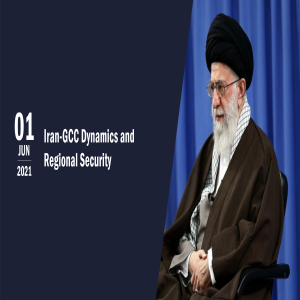
Wednesday Jun 02, 2021
Iran-GCC Dynamics and Regional Security
Wednesday Jun 02, 2021
Wednesday Jun 02, 2021
Against the backdrop of two interlinked events – the increased Arab-Israeli closeness resulting from the Abraham Accords and the attempts to resurrect the Iran nuclear deal, this webinar will explore the current nature and future dynamics of the relationship between Iran and the GCC states under the paradigm of regional security. Panelists will delve into two important dimensions of the Iran-GCC dynamics – viz., their respective security concerns and the possibility of common grounds for cooperation between them. Through its deliberations and discussions, the session will explore the viability of a regional security arrangement for the Gulf region which includes the six GCC states, Iran and Iraq and ponder over its acceptability by these states as well as other important regional stakeholders such as Israel.
This public talk was conducted online via Zoom on Tuesday, 1 June 2021 at 4.00pm (SGT) and was organised by the MEI Political Economy research cluster.
Click here for more details: https://mei.nus.edu.sg/event/iran-gcc-dynamics-and-regional-security/
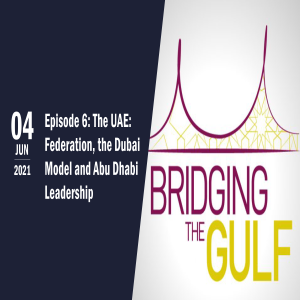
Thursday Jun 10, 2021
Thursday Jun 10, 2021
Did you know that the UAE is a federation of seven emirates which are governed by six ruling families? How did Dubai achieve global prominence to an extent that many rave about its economic model? This webinar approaches the UAE’s evolution through a socio-historical lens in the following order:
- The UAE as a federal government
- The prehistoric times (3000 B.C to 600 A.D), the Islamic era (600 to 1500 A.D) and onward to a period of transformation (1500 to 1820 A.D)
- Britain and the Trucial States (1820 to 1945)
- Political leadership under Abu Dhabi - The achievements of the Nahyan family, from Sheikh Zayed bin Sultan to Sheikh Mohammed bin Zayed
Speaker:
Dr Aqil Kazim is an Assistant Professor in the Department of Government and Society/Sociology Programme at the United Arab Emirates University, Al Ain, UAE. Dr Kazim received his MA and PhD from American University, Washington, DC. He is the author of The United Arab Emirates AD 600 to the Present: A Socio-discursive Transformation in the Arabian Gulf. He served as Dean of Students at American University, Sharjah and as Chair of the Sociology Department at UAEU. He has published numerous articles, including The Rise of Dubai: A Social History of the Commercial Cities in the Gulf and The Construction of the Pearl Industry in the UAE Region in 1869 -1938: its construction, production, and decline. He has also presented in many conferences on topics such as UAE’s demography, urban development and consumerism and edited the Emirati Studies textbook as well.
For the reading materials for this session, please visit
https://mei.nus.edu.sg/wp-content/uploads/2021/04/The-UAE-Federation-MEI-SNU.pdf
![[Boots Off the Ground: Security in Transition in the Middle East and Beyond] Episode 15: Surrogate Warfare -The Transformation of War in the 21st Century](https://pbcdn1.podbean.com/imglogo/ep-logo/pbblog4563756/BOTG-LOGOArtboard-1-Edited-700x461_300x300.png)
Thursday Jun 10, 2021
Thursday Jun 10, 2021
In this episode, Dr Andreas Krieg illustrates how private security companies are a response to an emerging global phenomenon: surrogate warfare. Military surrogacy involves not only human stand-in’s such as proxies, local militias and private contractors; but also with machine or technological surrogates as such drones, AI, and cyber-tech.
This podcast series is presented by Dr Alessandro Arduino, Principal Research Fellow and Dr Ameem Lutfi, Research Fellow, at the Middle East Institute, National University of Singapore.
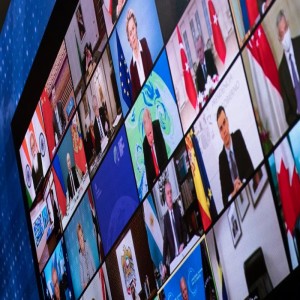
Thursday Jun 10, 2021
China: Full Steam Ahead in the Gulf?
Thursday Jun 10, 2021
Thursday Jun 10, 2021
This event is jointly organised by Political Economy and Diffusion of Ideas-Gulf Cluster of the Middle East Institute NUS, in collaboration with the Italian Institute for International Political Studies (ISPI).
Abstract
In a recent phone conversation between Chinese President Xi Jinping and Saudi Crown Prince Mohammad bin Salman, the former expressed support for the kingdom’s initiatives in climate governance and sustainable development. What is noteworthy is Beijing’s willingness to push its strategic partnership with Riyadh to a “new level”. This move comes after China’s decision to make the UAE its regional base for vaccine production, in a collaboration between Sinopharm and Abu Dhabi’s G42. Is China’s footprint in the Persian Gulf expanding beyond economics and moving into health and green initiatives adding to its array of soft power tools in the region and beyond? Will its move to chair a UN Security Council meeting on the Israel-Hamas crisis solidify ties with Gulf states?
The panel, moderated by Dr Alessandro Arduino, Principal Research Fellow from Middle East Institute (NUS), in collaboration with the Italian Institute for International Political Studies (ISPI), will tackle these and more.
This public talk was conducted online via Zoom on Tuesday, 8 June 2021, from 4.00pm to 5.30pm (SGT). Click here for more details on the event: https://mei.nus.edu.sg/event/china-full-steam-ahead-in-the-gulf/
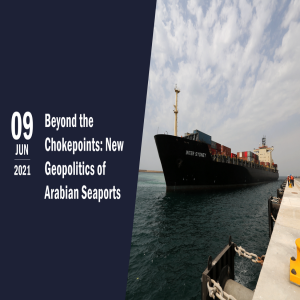
Monday Jun 14, 2021
Beyond the Chokepoints: New Geopolitics of Arabian Seaports
Monday Jun 14, 2021
Monday Jun 14, 2021
This event is jointly organised by the Institute of South Asian Studies (ISAS) & the Middle East Institute (MEI) at the National University of Singapore.
Around one-sixth of the global oil supply moves through the Strait of Hormuz, making this chokepoint perhaps the most crucial 21 miles in the world. Any minor disturbance or turmoil in these narrow waters can create ripples strong enough to rock the global economy. The US and its North Atlantic Treaty Organisation allies have long-held open and safe passage through the strait as their primary Middle East foreign policy goal. To secure these 21 miles, they built military bases all around the Gulf, stationed one of the largest floating bases with the Fifth Fleet in Bahrain and struck alliances with Arab monarchs to lay the foundation of the region’s political dynamics. However, several recent infrastructural developments immediately to the east are set to move us beyond this chokepoint politics. Oman, Pakistan, and Iran — otherwise minor players in the oil game — have built, with the help of sizeable foreign investments, thoroughly modern ports in Duqm, Gwadar and Chahbahar. While unique in their own way, each of these ports shares the same advantage over the current leading ports in the region — they circumvent the strait to open into the Arabian Sea, which is much more difficult to obstruct.
This panel discussion will explore the broader implications of this possible shift by analysing the following:
- What will a region built around channelling traffic through the Arabian Sea, instead of protecting the Strait of Hormuz, look like?
- Are the oil-producing Gulf states going to support these projects to reduce vulnerabilities to oil flows? Can we see a more earnest Iran at the negotiation table if it can no longer play the blockade card?
- Will this finally allow the US to further cut back on boots on the ground in the Middle East?
- How will China regulate traffic between its open-sea ports in Oman and Pakistan?
- Will these ports maintain exclusivity or will they connect and share traffic with the Indian-backed Chahbahar port in Iran?
- Will India expand its security cooperation with the US to cover the Arabian Peninsula or pursue its own autonomous regional strategy towards Iran and other regional actors?
- How will the involved states balance between collaborating for nurturing the corridor and competing for traffic through various economic, political, and security enticements?
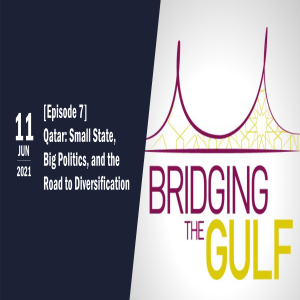
Tuesday Jun 22, 2021
Tuesday Jun 22, 2021
Qatar, a young state with a commensurately small population has emerged as an influential powerbroker in the Middle East. What are the tools that have enabled it to project power, soft or otherwise, on the international stage? How can we better understand Qatar’s “maverick” diplomacy that has enhanced its branding? Since its independence in 1971 and following a period of “high modernism,” the Qatari state has also deepened domestic ties with important social actors, bringing them into its orbit by forging lucrative financial ties. How did the acumen of Sheikh Hamad bin Khalifa Al-Thani, who became Emir in the mid-90s, take the country further forward and what was the rationale behind transferring power to his young son, Tamim bin Hamad Al-Thani (then 33 years old), in 2013?
Despite the challenge arising from the Gulf crisis from 2017 to 2021, Qatar has proven resilient and hastened processes of economic diversification. Besides liquefied natural gas, how has the state addressed the questions of energy transition and sustainable development? More importantly, self-sufficiency is key to Qatar’s resilience. These are the questions that our guest speakers will tackle in this webinar.
Speakers: Ms Zarqa Parvez, Durham University and Mr Omran Hamad Al-Kuwari, Qatar Foundation International (QFI)
(This episode was recorded on 11 June 2021. Click on the following link for more information: https://mei.nus.edu.sg/event/bridging-the-gulf/)
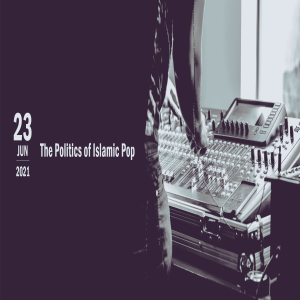
Friday Jun 25, 2021
The Politics of Islamic Pop
Friday Jun 25, 2021
Friday Jun 25, 2021
Pop nashid (or nasheed) refers to a vocal music work either sung a cappella or with instruments, according to a particular Islamic tradition or style. Such music and Islamic pop artistes generally celebrate Allah, Prophet Muhammad and an Islamic lifestyle in lyrics. At times, these lyrics address the importance of freedom or the situations for refugees or Palestinians.
Artistes and companies alike have featured in numerous politicised contexts. For instance, whether in events celebrating the Turkish politician Recep Tayyip Erdoğan or promoting the 2014 Indonesian presidential candidate Prabowo Subianto. This webinar will analyse the politics of Islamic pop music through a case study of the Islamic media company Awakening Records and their artistes. Beyond motivations and implications, the discussion will zoom in on the genealogy of the music in question. How can we frame the logic of politics within a conceptual discourse of Islamic ethical empowerment? How do we see post-Islamist engagement through such music? Professor Jonas Otterbeck aims to shed light on the above themes.
This public talk was conducted online via Zoom on Wednesday, 23 June 2021, from 4.00pm to 5.30pm (SGT). For the reading materials and more information on this event, you may click here: https://mei.nus.edu.sg/event/the-politics-of-islamic-pop/

